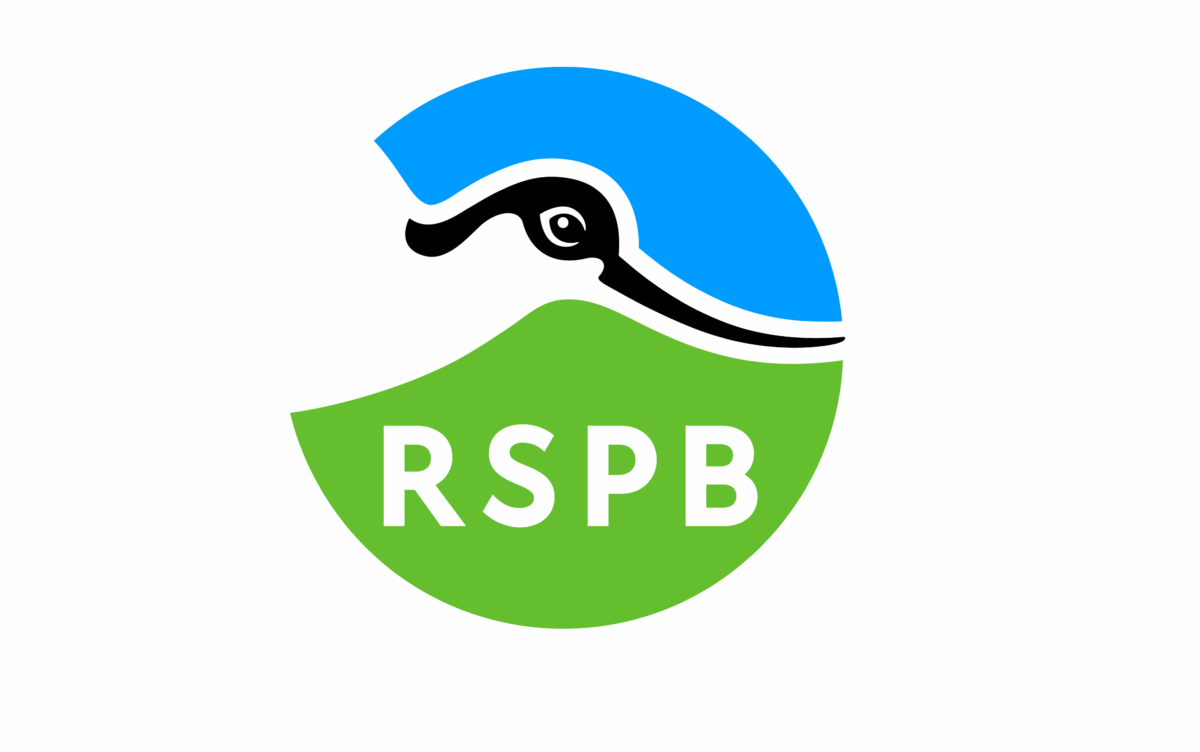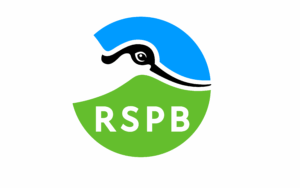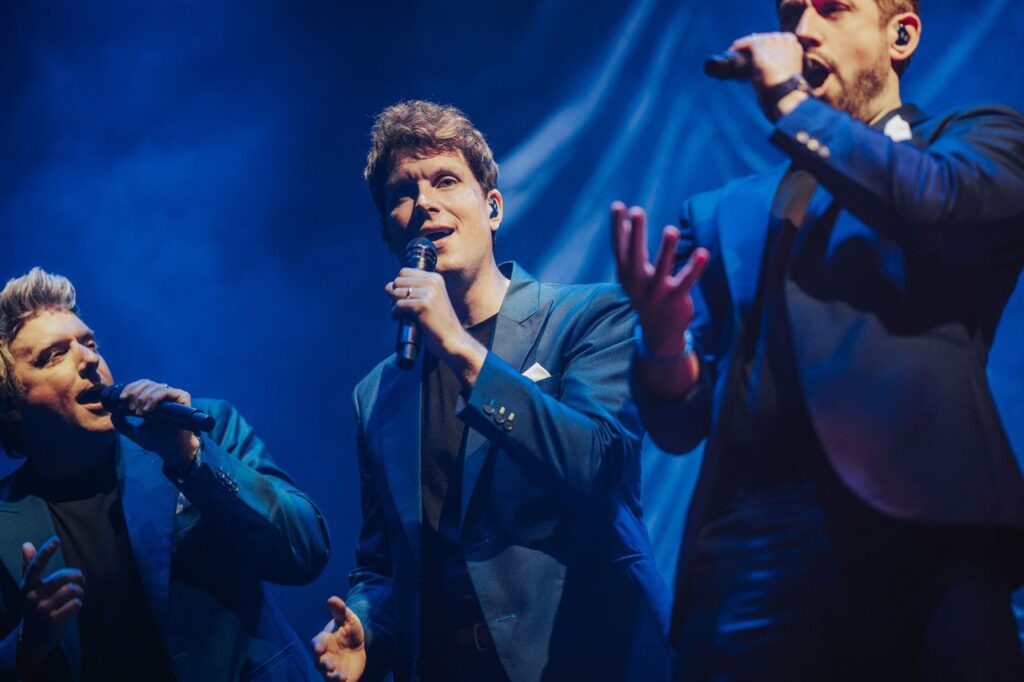In a first for Europe’s largest conservation charity, the RSPB (Royal Society for the Protection of Birds) is bringing the spectacle of the natural world to the big screen. Coming to London’s Troxy on 6th September, ‘A Night of Nature’ will blend cinema with the immediacy of a concert, thanks to live music synched to stunning footage of natural habitats and species, performed by string quartet Vesper and multi-million selling vocal group G4.
Ahead of the event, NHBS colleague Laura had a chat with Emma Marsh, the Executive Director for Digital Technology and Communications for the RSPB. In our interview, Emma shared details about this one-off live event, including its importance, what it represents and what she hopes people will take home and remember long after the concert is over. She also offered insights on her role, as well as the priorities and challenges for the charity.
Firstly, can you tell us a little bit about yourself and your role at the RSPB?
I was brought up on a farm in the Midlands (of England, UK) where my dad was a farm worker. I spent my childhood days exploring the fields, hedges and trees. I remember such a sense of freedom and the abundance of nature. That all changed as I grew older. Agricultural practices intensified and I watched the depletion of wildlife in front of me. That feeling of loss stayed with me and has driven my passion for conservation ever since.
My route into a conservation career was definitely not ‘standard’. My parents wanted me to be the first member of our extended family to go to university and a degree in International Relations, including the international politics of the environment, was my next step. I then navigated a route through the public sector, the commercial world in technology and finally landed in charity. I spent ten years in the waste and recycling sector, focusing on delivering behaviour change around food waste, which led to where I wanted and needed to be – in nature conservation and the incredible RSPB.
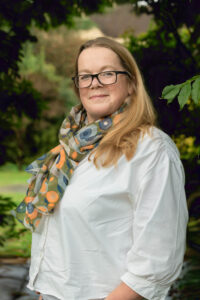
I joined RSPB in early 2016 as the Director for the Midlands, overseeing our network of landscapes, reserves, fundraising and comms, moving to be Director for the whole of England in 2019. In late 2022 I was able to bring together all of the experience I’d gained over the years, from Technology, to campaigning, to conservation, becoming the Executive Director for Digital Technology and Communications, sitting on the Executive Board.
Every day is different. One day I can be immersed in helping my team gear up our technology and media to deliver big events (such as Big Garden Bird Watch), the next pivoting and scaling up our comms and campaigning to unexpected legislative threats to nature, to speaking on the Radio 4 Today programme or R5Live about the incredible successes our teams have had with bringing threatened species like the Crane back from the brink of extinction. Another day I’ll be deeply immersed in developing the RSPBs strategy and reporting impact against it, the next working with Trustees, and when I’m really lucky it will be spent at one of our incredible 200+ nature reserves, seeing the spectacular conservation delivery and engagement that our teams do so well. It’s such a varied, dynamic and interesting role leading and working with some brilliant people – I’m incredibly lucky.
The RSPB has been around since 1889, and over the years it has developed and grown significantly. What would you say are its current priorities for nature, and where do you see the organisation going?
Emily Williamson, Etta Lemon and Eliza Phillips started the RSPB in the late 19th century, and the campaign they ran to ban the plumage trade (which was putting 60 bird species at risk of extinction) took three decades before it bore fruition. The tenacity and determination they demonstrated, when societal norms were stacked against them, was inspirational. When they started their campaign, women didn’t even have the vote, but they were convinced they could put an end to the trade, and they did. For me this determination and tenacity runs through the RSPB to this day. They used every tool at their disposal, just as we do today, campaigning with the public to drive awareness and support, engaging with politicians to drive legislative change and using science to gain credibility.
Our world-leading research allows us to take a bird’s eye view of the overarching problems facing nature and then pinpoint solutions that make a real difference. The world around us and the threats to birds and wildlife has changed significantly since the RSPB was created and so we have had to constantly evolve and change. Today we’re the UK’s largest nature conservation charity, with nearly 1.2 million members. We manage more than 200 nature reserves across all four countries of the UK, covering an area the size of 250,000 football pitches, making us the UK’s 5th largest landowner. Across those landscapes over 18,700 different species have been recorded. 85% of our workforce are volunteers, spending 1 million hours acting for nature every year. And we now have over 130 local groups spread right across the UK, connecting people and progressing conservation projects. We want to grow the number of people engaging with us as members, supporters, donors, volunteers, all taking action so that we can achieve a shared world where wildlife, wild places and all people thrive together. To do that we need to protect and restore habitats and landscapes, save species, help end the nature crisis, and inspire others to do the same. That’s a big ask but if anyone can do it, we can.
In particular in the UK our priorities are around demonstrating the art of the possible in terms of conservation on our nature reserves, and influencing nature-positive management at scale through partnerships in our Priority Landscapes; Internationally working with and through the BirdLife International partnership to deliver significant positive conservation impacts around the world; working to reduce the harmful impacts of selected fisheries around the world and marine development in the UK; getting the most important places protected through strengthened policy, and tackling threats to priority species; working tirelessly to secure the future of threatened species; working in partnership with the farming community across the UK, providing evidence-based advice to farmers, Governments and businesses, demonstrating good practice and developing and promoting policy frameworks that would enable a fair transition to nature-friendly farming; advocating for new income streams for nature so more can be invested in species and habitat recovery; and continuing to engage and empower more, and more diverse, people to take meaningful action alongside us to achieve all this. Ultimately, just like back in 1889, we think and act big. We deliver conservation you can see from space.
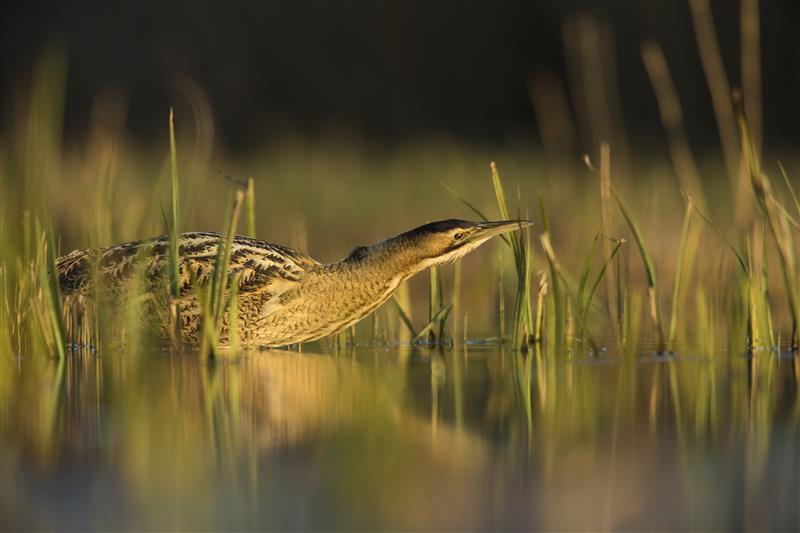
The Night of Nature concert seems like a new and exciting direction for RSPB engagement events. What inspired you to branch out?
Whilst Night of Nature is a bit of a first of its kind event for the RSPB, we nonetheless have a rich history of collaborating with voices from across the arts in order to bring nature to ever wider audiences. Back in 2022 we worked with international choreographer Sadeck Waff and agency 89up to create a ‘human murmuration’– a choreographed performance inspired by the stunning display birds put on as they flock together in a dance-like movement, emphasising the importance of working together to create impact. The murmuration was shown at COP15 where the Global Biodiversity Framework was agreed at the 11th hour. One of our current conservation milestones is the 50th anniversary of the re-introduction of White-tailed Eagles to the UK. To celebrate this achievement, we’ve partnered with acclaimed musician and sound artist Alice Boyd, who has just released a new track ‘Return of the White-Tailed Eagle’ (now streaming here) in tribute to the species. Alice also features – alongside RSPB ambassadors Dave Sexton and Nadeem Perera – in a forthcoming RSPB short film, ‘Return’, which documents the decades of conservation work by RSPB and our partners to bring the species back from the brink of extinction. ‘Return’ will release on August 29, with the trailer now streaming here.
We know just how important the voices of the creative community are to articulating the stories that drive our conservation work, and we’re thrilled to develop this relationship even further with Night of Nature.
Can you tell us a bit about the concert and what people can look forward to?
Night of Nature will blend live music with a cinematic celebration of nature. Stunning footage of the incredible species and habitats that we’re working to safeguard will be showcased on the Troxy’s big screen, synched to performances from #1-charting vocal group G4 and the Vesper string quartet. The evening will be hosted by RSPB Ambassador, actor/director Samuel West.
Think of this as a red-carpet experience—without the red-carpet price tag. With tickets starting at just £28, guests can enjoy an unforgettable show, mingle with our team, and even pose for a photo on the red carpet. It’s excitement, and entertainment—all within reach.
You have some exciting names attached to this event, how did they come to be involved?
G4 was a natural choice for Night of Nature. With their stunning harmonies and emotive performances, they bring a powerful sense of atmosphere to every stage they grace. But beyond the music, what really drew us to G4 was their genuine appreciation for the natural world. That really matters to us.
As a group that tours extensively across the UK and Ireland, G4 have had the chance to experience some of the country’s most breathtaking landscapes—from the dramatic coastlines of Scotland to the peaceful beaches of Devon, the wild beauty of Ireland, and the rolling hills of Yorkshire. Along the way, they make a point of pausing to soak in the scenery and observe the wildlife around them—often sharing these moments and photos with their fans on social media. It’s a window into the quieter, more reflective side of life on tour, and a reminder of how closely nature and creativity are intertwined.
With families of their own, the band feel a deepening responsibility to protect these places—not just for today, but for the generations that follow. When invited to take part in Night of Nature, they were immediately drawn to the idea of using music to celebrate the beauty of our world and support the vital work of the RSPB. For G4, this event is more than a performance—it’s a chance to help inspire others to cherish and protect the natural world.
Samuel West is an actor (currently playing Siegfried Farnon in All Creatures Great and Small on Channel 5) and director, and a keen birder for nearly twenty years. Speaking about his connection to RSPB and its work, Samuel says; “Until birds get their act together and organise their own pressure groups, I suppose we’ll just have to do it for them. With nature under unprecedented attack, the RSPB shows those in power what a huge and vocal nature lobby can do to change things. Our two young daughters love nature, and watching birds in particular. But the world they’ll inherit is in trouble. Half of all bird species worldwide are in decline. Biodiversity isn’t just a nice thing to have, it’s essential for the survival of humanity and the planet.”
Accessibility and connection to nature appear to be key inspirations for this event. What are you hoping to achieve with the Night of Nature concert?
In essence, Night of Nature is our way of saying a very heartfelt ‘thank you’ to all our members and supporters for their backing, without which we wouldn’t be able to deliver the vital work needed to protect and maintain the stunning array of species and habitats you’ll experience up on the Troxy’s big screen.
But we also know that we need more people to join us in taking action for nature. So we hope this also inspires even more people to come along and be a part of something bigger. Whatever you do – big or small – matters. It all joins up to create real and lasting change. Furthermore, research also demonstrates that connection to nature is in turn good for our own mental & physical well-being. Good for people and good for nature.
It’s our hope that Night of Nature galvanises even more of us to join the fight against biodiversity loss and work to tackle the climate crisis, as we strive towards a shared world, where wildlife, wild places and people all thrive alongside each other.
Tickets are on-sale now via Dice: A Night of Nature Tickets | From £28 | Sep 6 @ Troxy, London | DICE.

